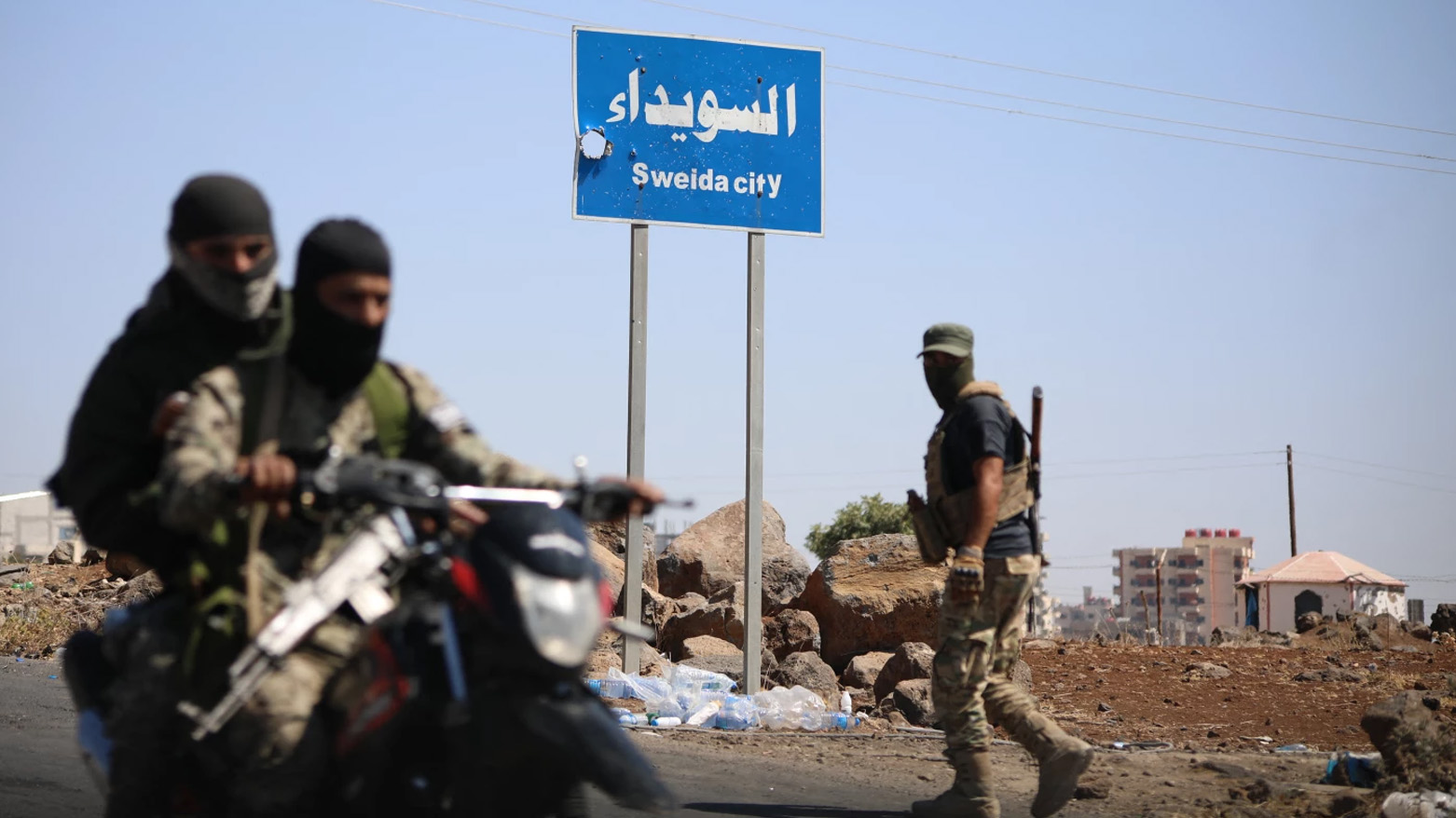Deadly Drone and Gunfire Attacks Shatter Fragile Calm in Sweida
Clashes between Syrian security forces and the National Guard in Sweida killed one "security member" and wounded two others, following attacks in the area. The Interior Ministry condemned the assault as a breach of ceasefire terms.

ERBIL (Kurdistan24) - A new wave of violence struck northern Sweida, killing one "civilian" and wounding at least five others, before armed clashes between security forces and the National Guard In Sweida deepened instability in the already tense province.
Local authorities confirmed that On Tuesday, a man from the city of Sweida lost his life and five civilians were injured on the Atil–Salim road when two consecutive attacks targeted the same location within minutes. According to the Syrian Observatory for Human Rights (SOHR), the first strike was carried out by an explosive-laden drone attributed to the Interim Government and its allied forces, hitting a poultry transport vehicle and injuring nearby civilians. Moments later, heavy machine-gun fire hit the area, increasing the casualties and triggering panic across the northern countryside.
The situation escalated further when clashes broke out between personnel from the Interim Government’s General Security and members of the National Guard In Sweida on the administrative line separating Sweida and Daraa provinces. The confrontations erupted shortly after the dual attack, resulting in "one security member" killed and two others wounded during their operational response according to the Syrian Arab News Agency (SANA).
In a statement, the Syrian Ministry of Interior condemned what it described as a “criminal assault” on a security checkpoint in the western countryside of Sweida. The ministry stated that the attack was carried out by “lawless groups,” leading to the death of "one security member" and the injury of two others as they performed their duties.
SOHR reported that these incidents mark yet another breach of the ceasefire in Sweida. Earlier, the Observatory documented a drone attack by government forces and allied units targeting positions near the National Guard, followed by mortar shells landing around the town. Additional rounds were reported near Kafr Laha, fired from government-aligned positions in Rima Hazem in the province’s northwestern countryside.
The renewed violence comes after a period of stabilization following July's devastating sectarian conflict, where the Syrian Foreign Minister Asaad Hassan al-Shaibani announced a comprehensive reconciliation roadmap for the province, developed with support from the United States and Jordan.
The July unrest erupted on July 13 and continued for a full week, beginning with clashes between armed Druze groups and Bedouin fighters. The violence escalated sharply after Syrian government forces intervened, later joined by tribal formations siding with the Bedouins. While Damascus insisted that its forces intervened to halt fighting, Druze factions, witnesses, and SOHR accused government units of siding with Bedouins and committing abuses, including summary executions.
According to SOHR, more than 2,000 people were killed, including 789 Druze civilians who were allegedly executed “on the spot” by members of the Syrian Ministries of Defense and Interior.
The new roadmap was unveiled during a joint press conference in Damascus attended by al-Shaibani, Jordanian Deputy Prime Minister and Foreign Minister Ayman Safadi, and U.S. Special Envoy for Syria Tom Barrack.
A statement from the Syrian Ministry of Foreign Affairs emphasized that the roadmap aims to resolve the Sweida crisis while preserving the unity of Syrian territory and affirming that “all Syrians are equal citizens in rights and responsibilities.”
The joint document — Roadmap for Resolving the Crisis in Sweida and Stabilizing Southern Syria — outlines guiding principles, stressing that Sweida is an integral part of Syria and that restoring trust requires a gradual, step-by-step process centered on confidence-building measures leading to full reintegration into the Syrian state.
The roadmap also calls for community dialogues coordinated by Jordan, involving Druze, Christians, Sunnis, and Bedouin tribal representatives. Transitional arrangements will create interim security and administrative structures until full reintegration is achieved, including a representative provincial council, reactivated civil institutions, and sustained humanitarian assistance.
On regional security, the United States will lead discussions with Syria to seek arrangements with Israel that address concerns of both sides while respecting Syrian sovereignty, with Jordan providing support through joint meetings. The three parties also agreed to establish a monitoring mechanism to oversee implementation of the roadmap.